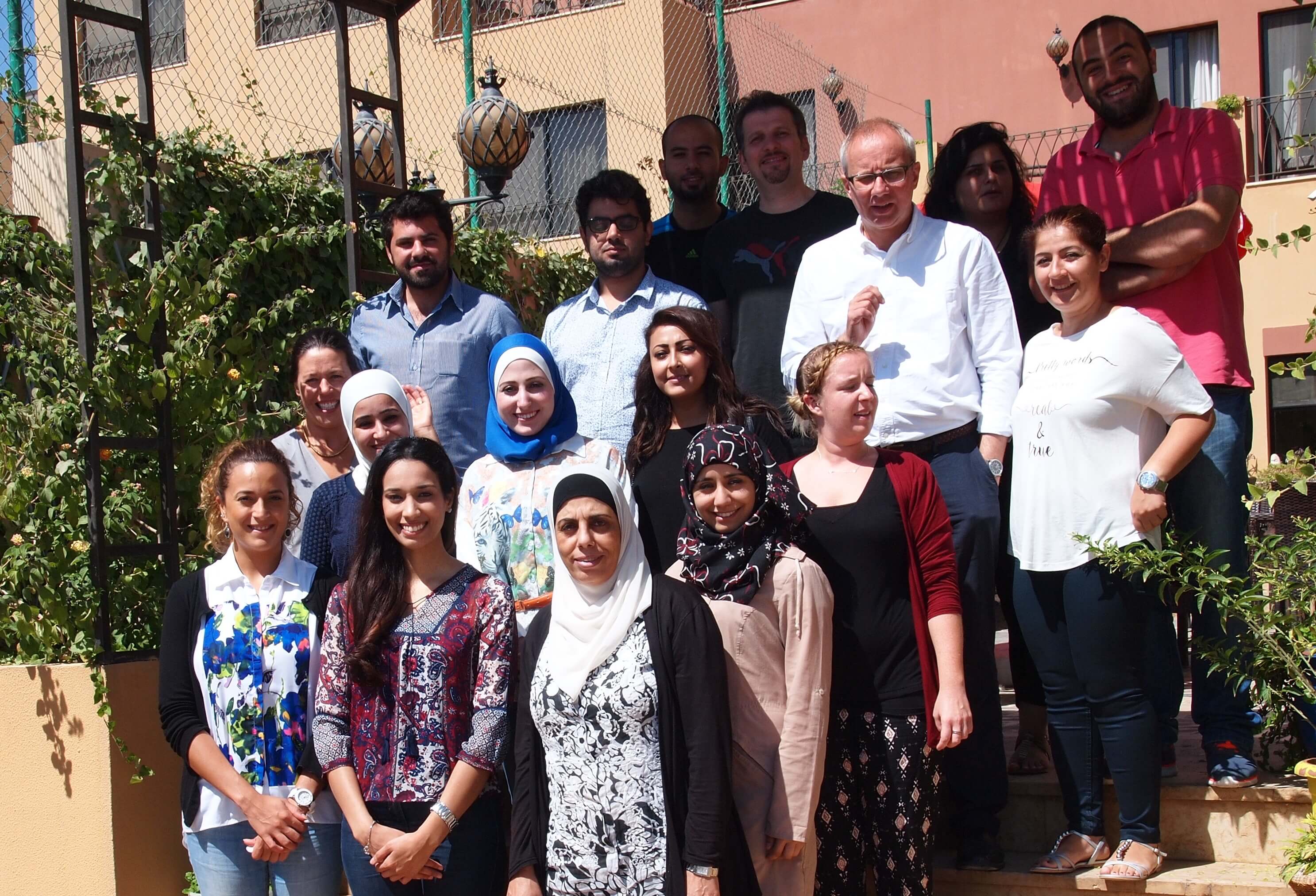This case study, produced on International Women's Day 2017, focuses on two women from Jordan, where women are discouraged from humanitarian work by cultural norms and expectations and are under-represented in humanitarian leadership positions.
Women and girls are often disproportionately affected when a disaster strikes. Yet they are rarely consulted, let alone involved, in humanitarian response initiatives. The humanitarian sector workforce is traditionally male-dominated, and this is particularly the case in countries such as Jordan.
The Talent Development project is a humanitarian capacity-building initiative which is part of the Disasters and Emergencies and Preparedness Programme (DEPP), coordinated by the Start Network and funded by UK aid. Its aim is to build the capacity and capability of 1,165 national aid workers in five countries that are frequently affected by natural disasters and emergencies.
What has this project achieved?
Talent Development aims to maximise female participation on all of its capacity building programmes. Globally, 40 per cent of those who have participated in Talent Development (including trainings at middle and senior levels) are women – and this is across Bangladesh, Jordan, Kenya, Ethiopia and DRC, countries where women are under-represented in the existing humanitarian workforce.
Lina's story
Lina Al Tarazi now works as Programme Field Coordinator with the Royal Health Awareness Society (RHAS) in Jordan. She previously took part in the ‘Context: Core Skills Development Programme’.
“We circulated a questionnaire to students and schools: we asked them whether they wanted to talk about hygiene, oral hygiene, bullying . . . and this led us to make some upgrades to the project. For example, in the sessions on hygiene in high schools, we included a special session for girls, focusing on the menstrual cycle. It took time to plan - and required us to allocate some additional funds - but it was worth the investment, because it meant we were able to deliver a more relevant programme. It wasn’t easy to get this up and running: menstruation is a delicate topic, so we had to make sure all parties were on board with the idea.
“What I noticed is that, as a result, the girls were very engaged in the session. They were participating, sharing their experiences, asking questions. And afterwards I overheard some of them saying that it was the first time they had attended a session that was based not on the facilitator’s idea of what the participants needed to hear, but on the suggestions of the participants. So that increased their sense of ownership.”
Ribhieh's story
Ribhieh Hamadeh, shown in the photo below centre front, is a project manager with the Families Development Association in Jordan.
“Since I’m responsible for managing projects at the Families Development Association, I felt I needed to improve my leadership skills and get to know more about what other organisations are doing in order to improve their humanitarian response programmes. I found that the Context programme could offer me what I was looking for. Many aspects of this journey were interesting and beneficial, especially the focusing on delivering knowledge through interactive training sessions and the use of case studies. It made it easier to gain practical skills in topics such as leading teams, effective communication, and scale-up programmes. Additionally, each participant brought their own experience and skill-set, which enriched the programme.
“The ‘Context’ training helped me realise the importance of my role and others’ in delivering services to vulnerable groups in our communities. It also raised my awareness of the impact that I can have, whether negative or positive, through my actions.”
Read more about the Disasters and Emergencies Preparedness Programme.
Read more about Talent Development.
International Women's Day 2017.
Photo credits: RedR

